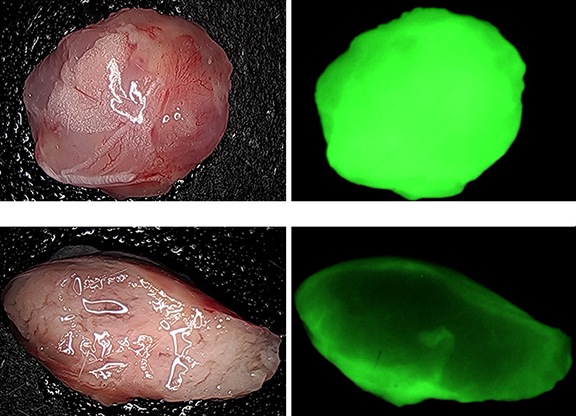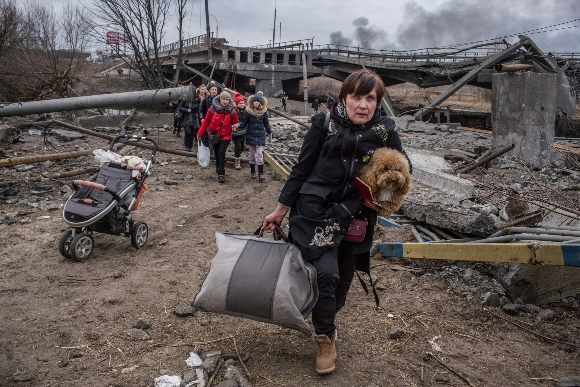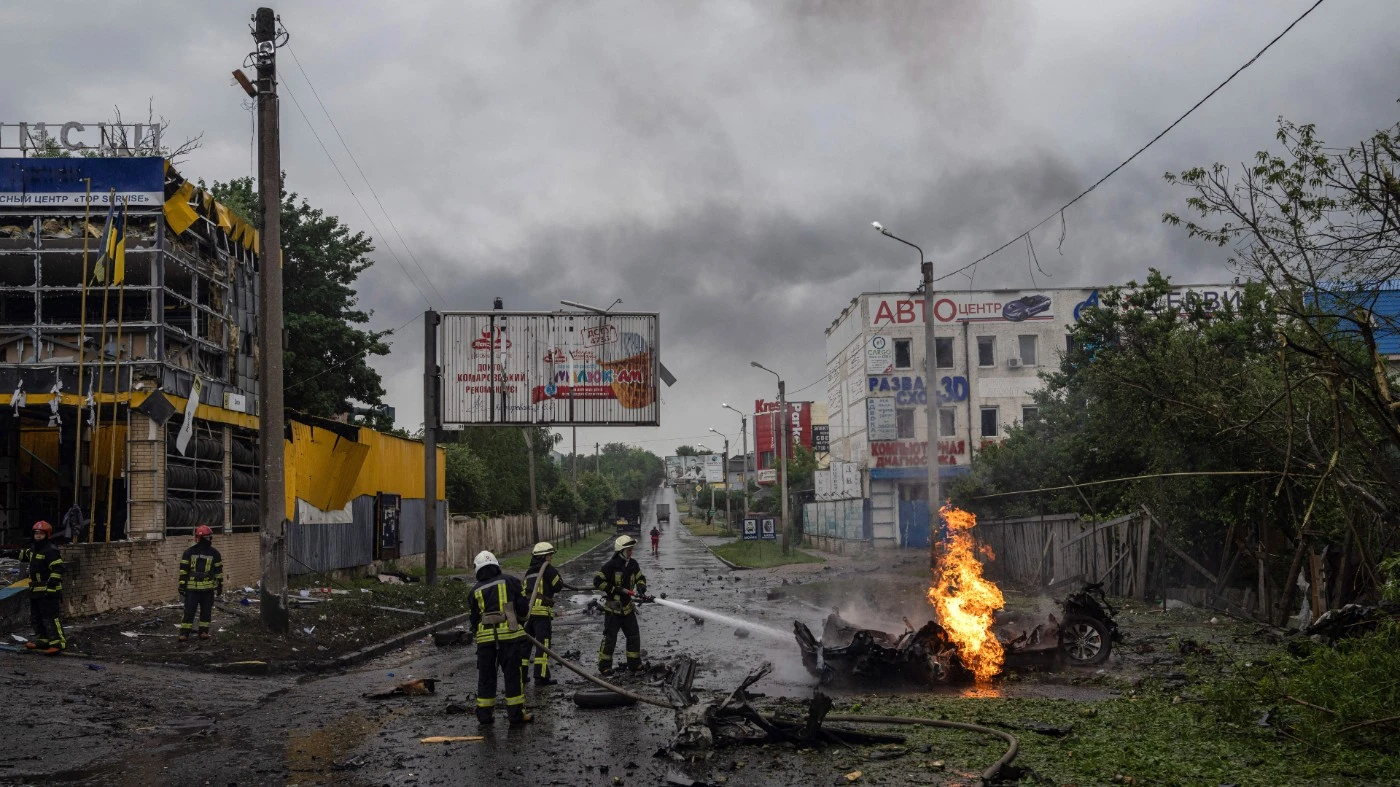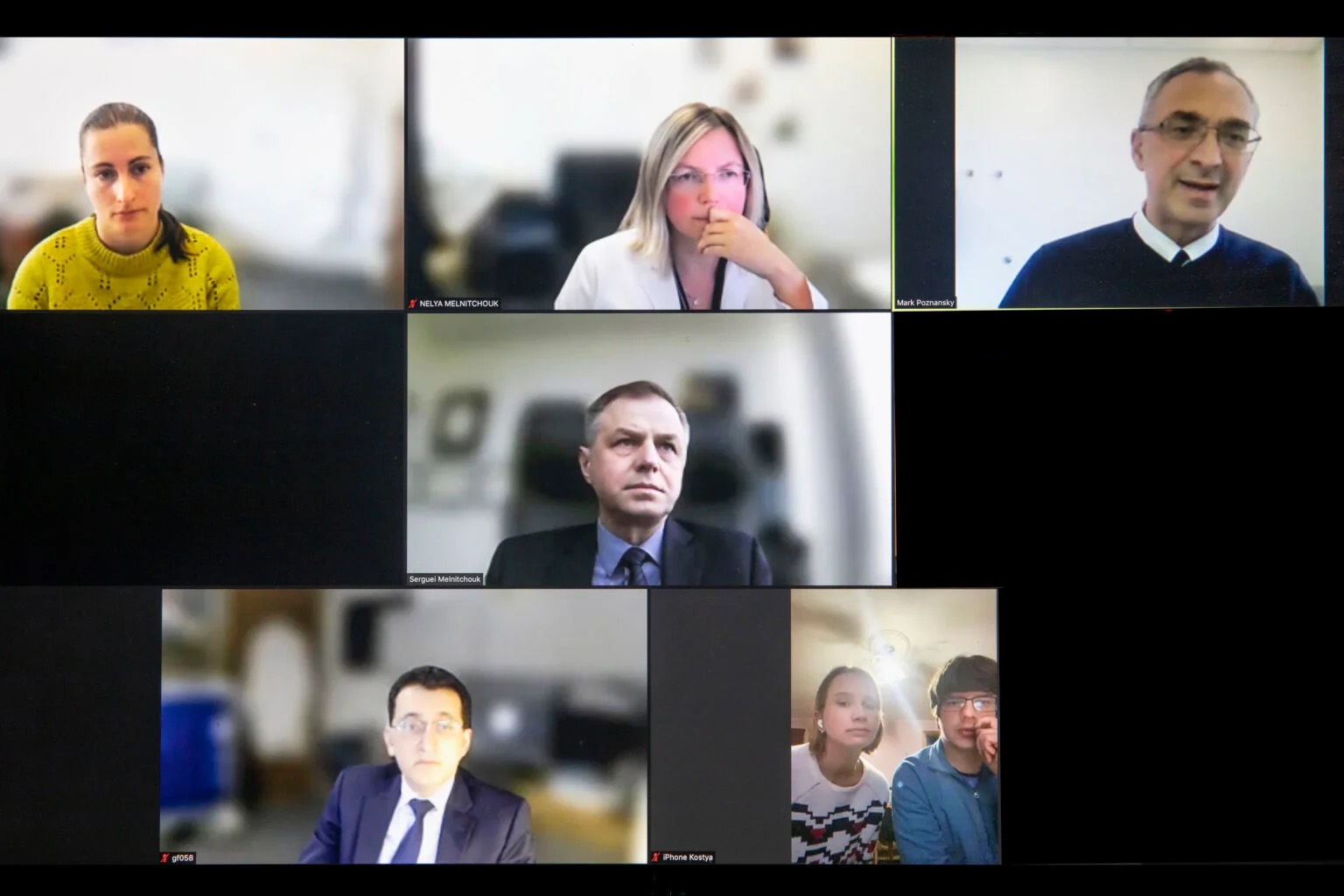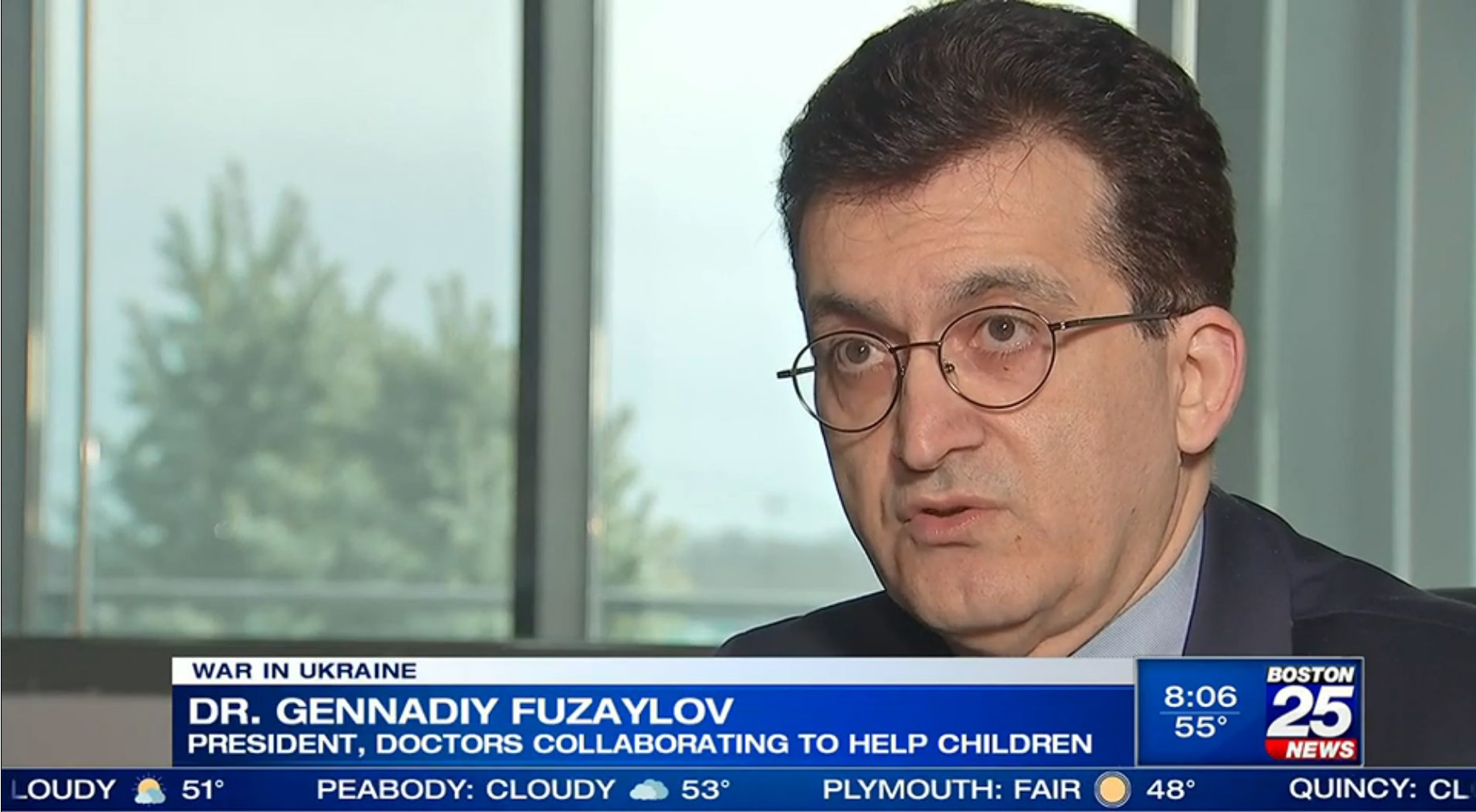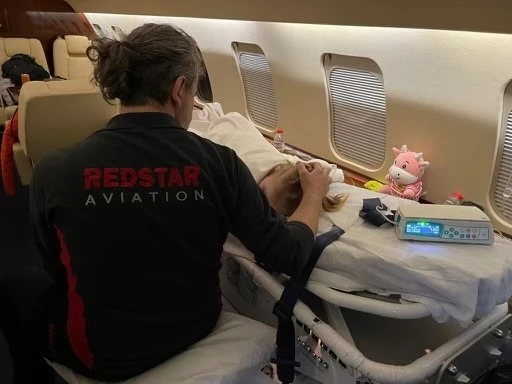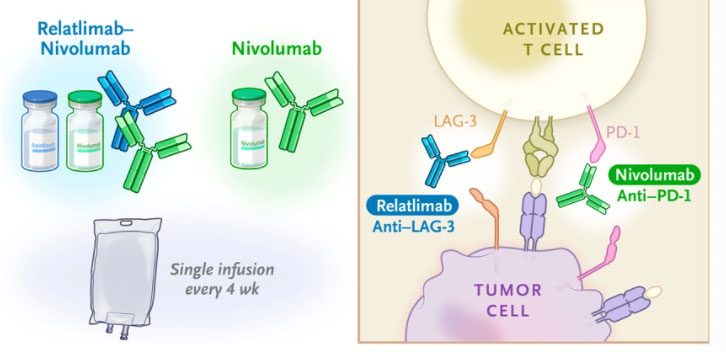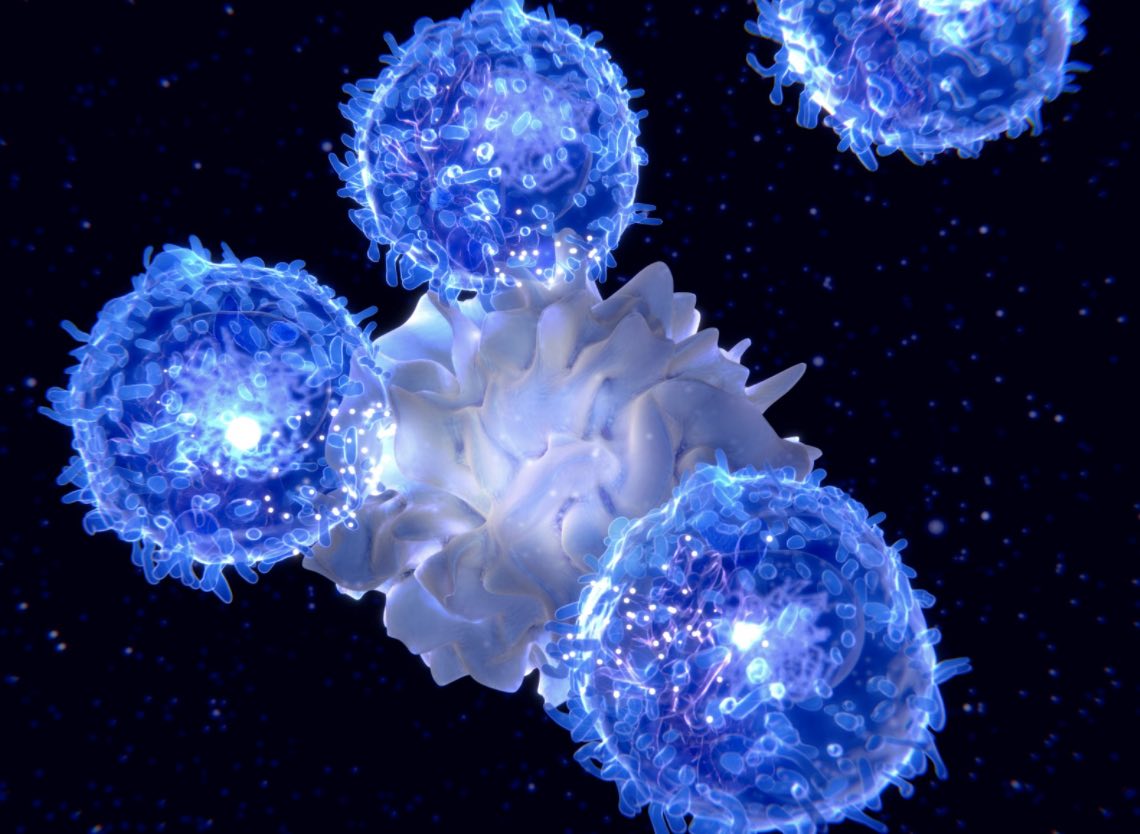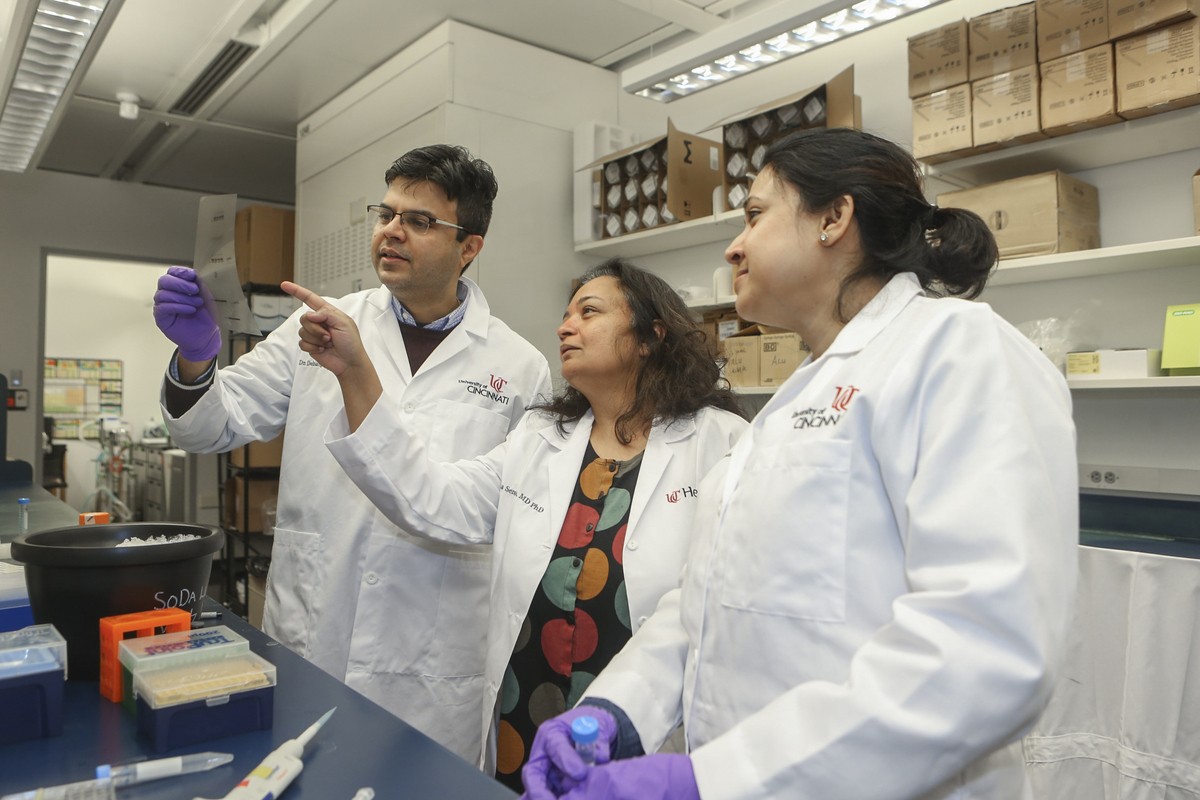For past decades, the treatment of cancer has generally meant surgery, radiation, chemotherapy, or a combination of the above. Through recent work from a collaboration of researchers from the University of Rhode Island and Yale University comes the promising new approach of delivering immunotherapy agents, STING agonists, via a cancer-seeking molecular delivery system. The delivery relies on the acid-seeking molecule- pHLIP. These molecules deliver cargo directly to the tumor environment via targeting of the high acidity of cancerous tumors. Through this novel drug delivery technique, cancer immunotherapy may become even more effective.
Continue readingPutin weaponizing refugees: NATO must draw red lines and enforce them
WMD in Ukraine: a planetary near-death experience
Op-Ed in the Hill written by Drs’ Helfand, Callahan, Hodgkin and Poznansky on the continued existence of weapons of mass destruction and the unacceptable threat to the Ukraine, global security and public health.
“The war in Ukraine is now in its fifth month and, while the brutal toll of military and civilian casualties continues to climb, the territorial lines have become increasingly static, with mostly incremental gains by Russian forces in Ukraine’s eastern Donbas region. We continue to learn of human rights violations, from intentional targeting of civilians and civilian infrastructure to deportation of Ukrainian civilians into Russia. Despite the devastation…”
The Harvard Gazette – Viewing Ukraine’s war-torn health care through a personal lens
Physicians Polina Teslyar, Nelya Melnitchouk, Mark Poznansky, Serguei Melnitchouk, Dana Ronak and Rolin Kostya, and Gennadiy Fuzaylov speak with Harvard-affiliated doctors from Brigham and Women’s and MGH via Zoom to discuss the situation in Ukraine.
“Both Serguei Melnitchouk and his wife, Nelya, are surgeons, he at Massachusetts General Hospital and she at Brigham and Women’s Hospital. Both are Harvard Medical School assistant professors, and both have families who are safe for now in small towns in Ukraine.
“We are constantly checking the news and trying to find ways to help,” said Nelya, who directs the Brigham’s colorectal surgery fellowship and is working with her husband on a series of medical aid projects for Ukraine. “Obviously, this whole war is very close to my heart.”
Dr. Gennadiy Fuzaylov from HUG and through his organization, DCHC, has successfully assisted transporting afflicted children from the Ukraine to hospitals in the US.
Boston burn doctors help save suffering Ukrainian children
“Two young children with severe burns, accompanied by a single parent each, fled by car from different regions of war-ravaged Ukraine toward the Polish border. From Poland, away from Russian bombs, they boarded a flight that is at least 10 hours long no matter if they flew from border cities like Lublin or Rzeszow or from the capital Warsaw, and landed sometime around midnight — late Wednesday or early Thursday — to be treated by burn specialists at Boston’s…”
COVID Vaccines, Therapeutics, Variants, Long COVID, Ability To Tackle the Next Pandemic
Dual-drug treatment offers promise for advanced melanoma patients
Novel drug combination may boost chemoimmunotherapy response in bladder cancer patients
A proof-of-concept study suggests that the combination of anti-inflammatory medication and chemotherapy drugs can boost immune response to suppress bladder tumor growth. Led by Cedars-Sinai Cancer investigators, the study focused on tackling the immune-dampening effect of chemotherapy drugs. Research uncovered the underlying mechanism that results in chemotherapy treatment failure, the release of prostaglandin E2. This bioactive lipid is associated with inflammation and inhibits dendritic maturation. A preceding factor for cells to fight cancer. In addition, early investigation revealed potential in combining celecoxib, an anti-inflammatory medication, and chemotherapy drugs as improved immune response was observed in treated mice models. Researchers look to test the efficacy of the potential treatment in human trials for bladder cancer patients.


